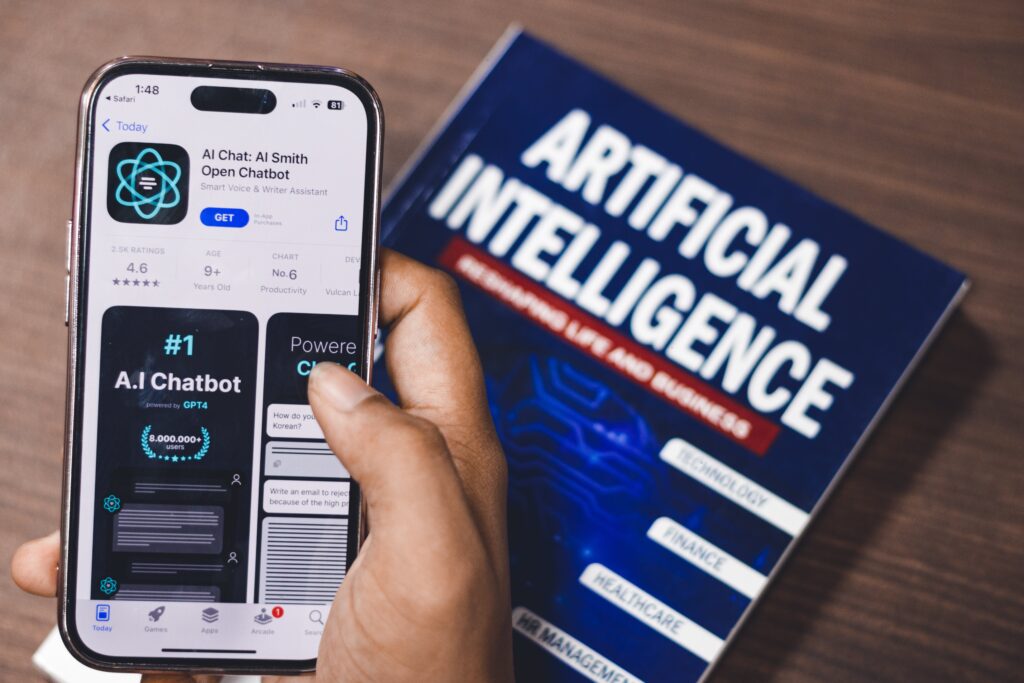
Artificial intelligence (AI) has emerged as one of the most transformative technologies of our time. It is revolutionizing various industries and reshaping the way we live, work, and interact. In this journal, we will explore the reasons why AI is so important and its potential impact on society, economy, and innovation.
Enhancing Efficiency and Productivity
One of the key reasons why AI is important is its ability to enhance efficiency and productivity across industries. AI-powered automation and machine learning algorithms can perform tasks faster, more accurately, and with minimal human intervention. This not only reduces human error but also frees up human resources to focus on more complex and creative endeavors. With AI, businesses can streamline operations, optimize processes, and ultimately improve their bottom line.
John Crestani’s Autowebinar Funnel! Learn More
Unlocking New Opportunities and Innovation
AI has the potential to unlock new opportunities and drive innovation in various sectors. By analyzing vast amounts of data and identifying patterns, AI algorithms can generate insights that were previously inaccessible. This can lead to the development of new products, services, and business models. For example, AI-powered recommendation systems have transformed the e-commerce industry by personalizing customer experiences and driving sales. In healthcare, AI is enabling early disease detection and personalized treatment plans. The possibilities for innovation are endless with AI.
Enabling Data-driven Decision Making
In the era of big data, AI plays a crucial role in enabling data-driven decision making. With the ability to process and analyze massive volumes of data in real-time, AI algorithms can extract valuable insights and patterns. This empowers businesses and organizations to make informed decisions based on data rather than intuition or guesswork. AI algorithms can uncover hidden correlations, predict future trends, and identify potential risks. This data-driven approach enhances decision making across domains, from finance and marketing to healthcare and logistics.
John Crestani’s Autowebinar Funnel! Learn More
Personalizing User Experiences
AI is instrumental in personalizing user experiences across various platforms and applications. By leveraging machine learning algorithms, AI can analyze user data, preferences, and behavior to deliver personalized recommendations, content, and services. For example, streaming platforms use AI to recommend movies and TV shows based on user viewing history. E-commerce platforms use AI to suggest products based on individual preferences and browsing history. This level of personalization enhances user satisfaction and engagement, leading to increased customer loyalty and revenue.
Improving Healthcare and Medicine
AI has the potential to revolutionize healthcare and medicine, making it another important reason for its significance. Machine learning algorithms can analyze medical data, such as patient records and medical images, to assist in disease diagnosis, treatment planning, and drug discovery. AI-powered chatbots can provide preliminary medical advice and triage patients, improving access to healthcare services. Additionally, AI can enable remote monitoring and predictive analytics, helping to detect and prevent diseases at an early stage. By leveraging AI, healthcare providers can improve patient outcomes, reduce costs, and enhance overall healthcare delivery.
John Crestani’s Autowebinar Funnel! Learn More
Advancing Scientific Research
AI is also playing a crucial role in advancing scientific research across various disciplines. AI algorithms can analyze complex scientific data, accelerate data processing, and assist in the discovery of new insights. For example, in astronomy, AI is used to analyze astronomical data and detect celestial objects, such as exoplanets. In genomics, AI algorithms are applied to analyze DNA sequences and identify potential disease-causing mutations. The application of AI in scientific research is enabling breakthroughs that were previously unattainable, contributing to the advancement of knowledge and innovation.
Addressing Societal Challenges
Another important aspect of AI’s significance lies in its potential to address societal challenges. AI can be applied to tackle complex problems such as climate change, poverty, and social inequality. For example, AI-powered predictive models can help optimize energy consumption and reduce carbon emissions. AI algorithms can also analyze social data to identify patterns of poverty and inequality, enabling policymakers to develop targeted interventions. By harnessing AI’s power, society can make significant progress in addressing pressing global challenges.
John Crestani’s Autowebinar Funnel! Learn More
Ethical Considerations and Responsible AI
While AI offers immense benefits, it also raises ethical considerations that must be addressed. The responsible development and deployment of AI systems are crucial to ensure fairness, transparency, and accountability. Issues such as bias in AI algorithms, privacy concerns, and the impact on employment require careful consideration. Organizations and policymakers must collaborate to establish ethical guidelines, regulations, and frameworks that govern the use of AI, balancing innovation with societal well-being.
Conclusion
Artificial intelligence is undeniably important due to its potential to enhance efficiency, unlock innovation, enable data-driven decision making, and personalize user experiences. It has the power to transform industries, improve healthcare, advance scientific research, and address societal challenges. However, the responsible development and deployment of AI systems are critical to realizing its full potential and ensuring ethical considerations are addressed. With careful planning and collaboration, AI can be harnessed as a force for good, shaping a more prosperous and equitable future for society.